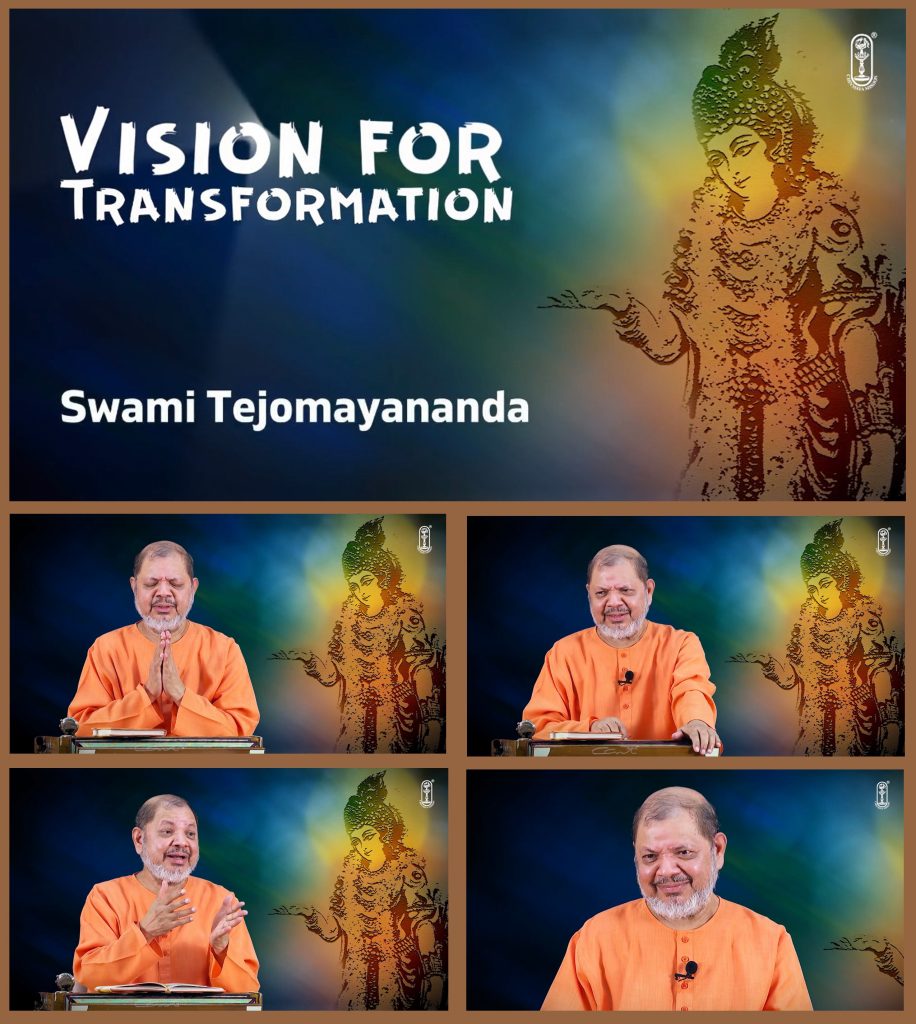Don’t miss these takeaways from a series of four inspiring talks by Swami Tejomayananda on Chinmaya Channel, YouTube.
Takeaway 1
Our actions, reactions and responses depend upon our vision of life. To bring about a paradigm shift, to transform this vision, we need to know its foundation, criteria, vision. What is our value system? Transformation comes only when we change our whole vision of life! Vedanta says, “Look at your life as a whole; not fragmented, not in parts.” In the Bhagavad Gita, which is the essence of the Upanishads, the Lord changed Arjuna’s faulty thinking and without any external change, transformed his vision.
Takeaway 2
Vision influences every aspect of life and is of three types – sattvika, rajasika, tamasika. A sattvika vision expresses as boundless joy in the experience of Oneness, as love for all beings, ever readiness to serve. A rajasika vision sees differences between cultures, countries, religions. The notions – I, my, you, yours, right, wrong, good, bad, like, dislike, superiority, inferiority – create barriers and loot away our peace of mind. Foolish and illogical, a tamasika vision gets unreasonably attached, taking a part to be the whole.
Takeaway 3
The vision dictates understanding or buddhi. It is the faculty of knowing, understanding, discretion, separation, analysis. We use this faculty, to decide what to do and what not to; to know our duties and responsibilities; to differentiate between bondage and liberation and to become fearless. Sattvika buddhi knows the mind alone causes bondage and also liberates. Rajasika buddhi, bound by personal preferences, leads to vagueness, doubt, confusion and problems. Tamasika buddhi manages to understand just the opposite of everything.
Takeaway 4
To achieve any goal we require fortitude, patience and the ability to hold on or to sustain. How we use this ability – dhriti – and to what purpose, in which field, determines whether it is sattvika, rajasika or tamasika. Each one knowingly or unknowingly works for happiness; they pursue goals according to their vision. The tamasika consider unreal happiness, as happiness. The rajasika think, what they enjoy is happiness. Only the sattvika know what real happiness is! Happiness puts an end to sorrow without dependence on anything!
